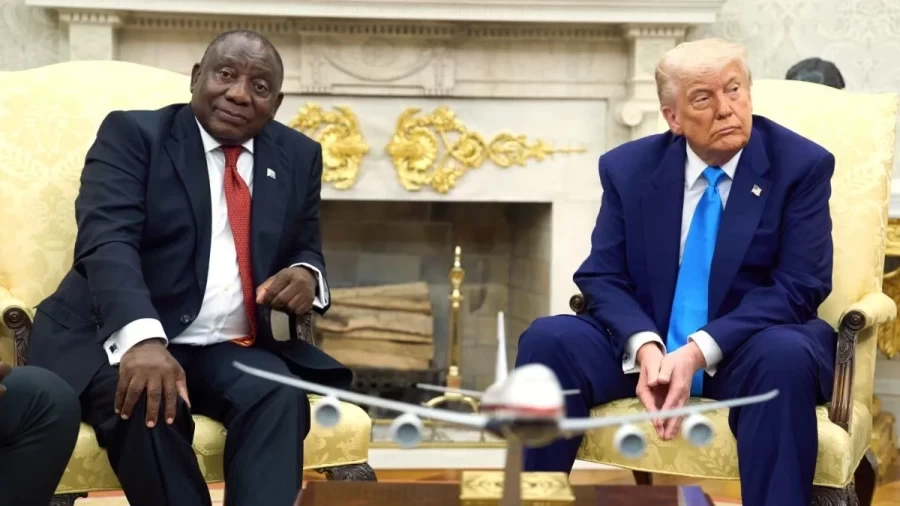Donald Trump News: The recent summit between the US and South Africa turned into a diplomatic drama when a heated debate took place between US President Donald Trump and South African President Cyril Ramaphosa in the Oval Office. The issue was – alleged atrocities and killings against white farmers in South Africa. This meeting not only highlighted the opposition in the views of the two heads of state, but also made public the sourness in US-South Africa relations.
Trump's sharp allegations and dramatic presentation
At the very beginning of the meeting, Trump heated up the atmosphere in his typical style. He dimmed the lights of the Oval Office and got a large TV screen installed to play a video in which South African opposition leader Julius Malema was singing a controversial song – “Kill the Boer”. Trump called this song evidence of "violent mentality against white farmers".
He further showed several news reports and social media clips, in which the white cross on the roadside was described as a symbol of the graves of dead white farmers. Trump claimed that the South African government was taking away land and killing farmers as part of its anti-white policies. He called the entire incident a “genocide” and claimed that people were leaving the country to save their lives.
Ramaphosa's restrained response
President Ramaphosa was clearly uncomfortable with Trump's statements, but he maintained balance in his response. He strongly refuted all of Trump's allegations, saying, "This is not the policy of our government, and we completely deny these allegations." He stressed that the country's crime problem does not arise from apartheid, but from social and economic inequality - and farmers of all races are suffering from it.
Ramaphosa also tried to defuse the meeting. He presented Trump with a grand book weighing 14 kilograms based on South Africa's golf courses and said that he was working on improving his golf skills.
Deepening mistrust and strategic disagreement
The Trump administration has already stopped financial aid to South Africa. The US has accused South Africa of supporting organisations such as Iran and Hamas and of being vocal against Israel at international forums. In particular, South Africa's move to the International Court of Justice regarding the Gaza conflict has further irked the US.
The presence of Elon Musk was also interesting in this meeting. Musk claimed that his company Starlink did not get the license because they are not "black". While South African officials said that Starlink never made an official application.
Another 'Zelensky Moment'?
Ramaphosa may have learned a lesson from President Zelensky's 'humiliating' meeting in February. He came fully prepared to impress Trump this time - the delegation included famous golfer Ernie Els and Afrikaner businessman Johann Rupert. Despite this, the way Trump raised the issue and made it public showed that this meeting was not just a courtesy, but echoed political differences.
The battle for power and identity behind the curtain of diplomacy
This meeting has exposed the rift in US-South Africa relations. While the Trump administration is taking a tough stand in the name of human rights and racial oppression, the Ramaphosa government is calling it the result of “false allegations” and “misinformation”.
Trump's style has always been aggressive, and this meeting also became an example of that. On the other hand, Ramaphosa's role was that of a balanced leader who was trying to save his country's image.
This White House meeting has left a new layer of controversies instead of any solution - which makes it clear that the US and South Africa now need serious and unbiased dialogue to improve their relations, not allegations and counter-allegations on public forums.


